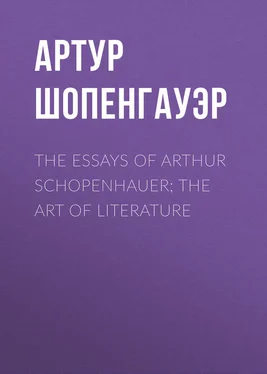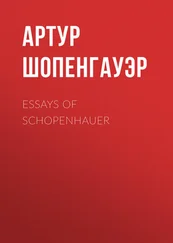An obscure and vague manner of expression is always and everywhere a very bad sign. In ninety-nine cases out of a hundred it comes from vagueness of thought; and this again almost always means that there is something radically wrong and incongruous about the thought itself – in a word, that it is incorrect. When a right thought springs up in the mind, it strives after expression and is not long in reaching it; for clear thought easily finds words to fit it. If a man is capable of thinking anything at all, he is also always able to express it in clear, intelligible, and unambiguous terms. Those writers who construct difficult, obscure, involved, and equivocal sentences, most certainly do not know aright what it is that they want to say: they have only a dull consciousness of it, which is still in the stage of struggle to shape itself as thought. Often, indeed, their desire is to conceal from themselves and others that they really have nothing at all to say. They wish to appear to know what they do not know, to think what they do not think, to say what they do not say. If a man has some real communication to make, which will he choose – an indistinct or a clear way of expressing himself? Even Quintilian remarks that things which are said by a highly educated man are often easier to understand and much clearer; and that the less educated a man is, the more obscurely he will write — plerumque accidit ut faciliora sint ad intelligendum et lucidiora multo que a doctissimo quoque dicuntur … Erit ergo etiam obscurior quo quisque deterior .
An author should avoid enigmatical phrases; he should know whether he wants to say a thing or does not want to say it. It is this indecision of style that makes so many writers insipid. The only case that offers an exception to this rule arises when it is necessary to make a remark that is in some way improper.
As exaggeration generally produces an effect the opposite of that aimed at; so words, it is true, serve to make thought intelligible – but only up to a certain point. If words are heaped up beyond it, the thought becomes more and more obscure again. To find where the point lies is the problem of style, and the business of the critical faculty; for a word too much always defeats its purpose. This is what Voltaire means when he says that the adjective is the enemy of the substantive
Конец ознакомительного фрагмента.
Текст предоставлен ООО «ЛитРес».
Прочитайте эту книгу целиком, купив полную легальную версию на ЛитРес.
Безопасно оплатить книгу можно банковской картой Visa, MasterCard, Maestro, со счета мобильного телефона, с платежного терминала, в салоне МТС или Связной, через PayPal, WebMoney, Яндекс.Деньги, QIWI Кошелек, бонусными картами или другим удобным Вам способом.
In their Hegel-gazette, commonly known as Jahrbücher der wissenschaftlichen Literatur .
Select examples of the art of writing in this style are to be found almost passim in the Jahrbücher published at Halle, afterwards called the Deutschen Jahrbücher .
King Henry IV ., Part II. Act v. Sc. 3.












